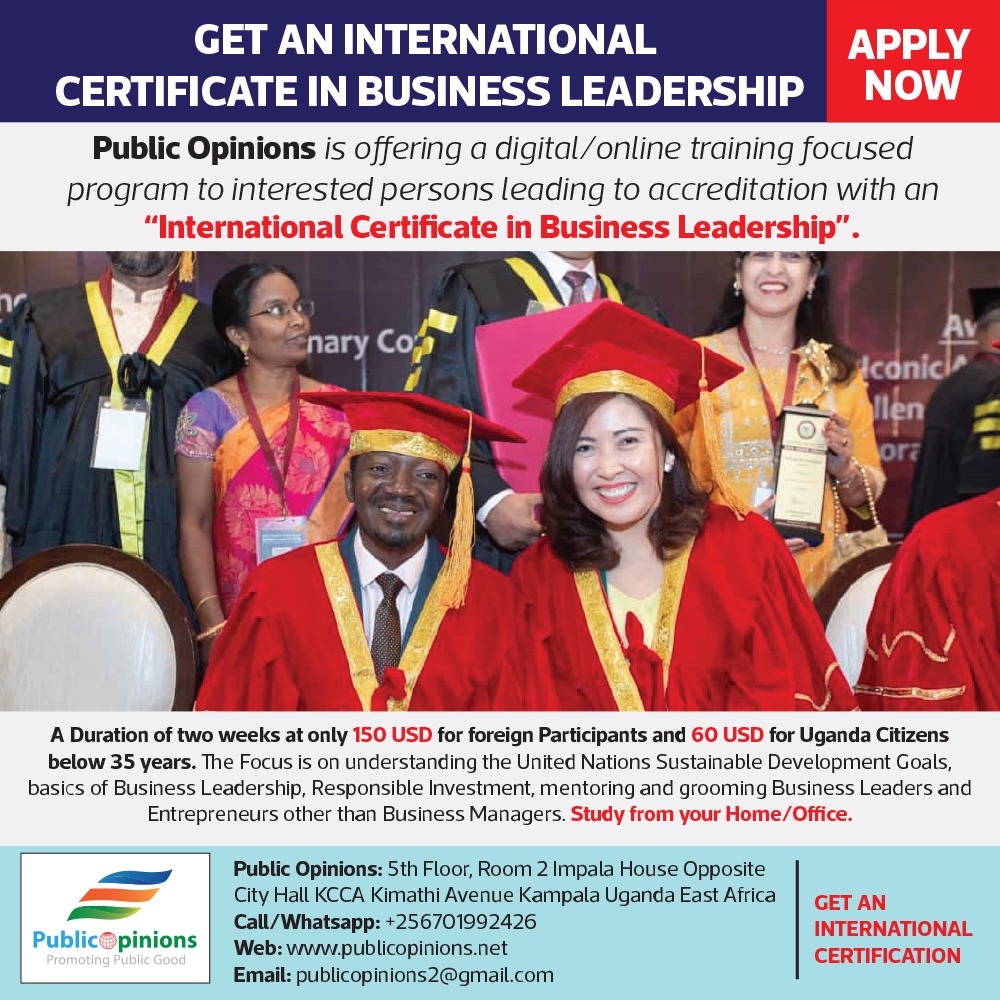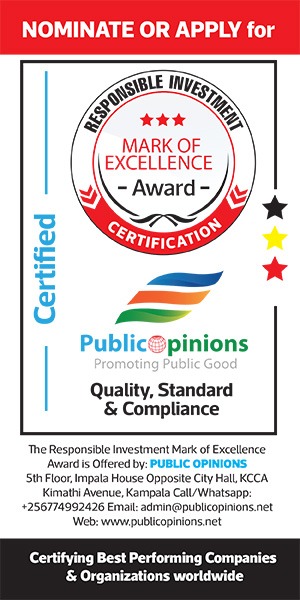 USAID Nigeria is a winner of the 2016 West Africa Responsible Investment Award and accredited “West Africa Top200 Responsible Investments” in recognition and appreciation of its enormous contribution towards social-economic development of west Africa and contribution towards realisation of the United Nations Sustainable Development Goals in West Africa. Awarded and Accredited by Public Opinions International
USAID Nigeria is a winner of the 2016 West Africa Responsible Investment Award and accredited “West Africa Top200 Responsible Investments” in recognition and appreciation of its enormous contribution towards social-economic development of west Africa and contribution towards realisation of the United Nations Sustainable Development Goals in West Africa. Awarded and Accredited by Public Opinions International
 USAID has a long and proud history of assistance to Nigeria that dates back to 1960, the year that Nigeria became the 26th African nation to gain independence. At that time, the U.S. Government awarded grants to four major U.S. state universities (Michigan State, Wisconsin State, Kansas State, and Colorado State) to build colleges of agriculture in four Nigerian universities: the University of Ibadan, University of Nigeria-Nsukka, Ahmadu Bello University-Zaria, and the University of Ife.
USAID has a long and proud history of assistance to Nigeria that dates back to 1960, the year that Nigeria became the 26th African nation to gain independence. At that time, the U.S. Government awarded grants to four major U.S. state universities (Michigan State, Wisconsin State, Kansas State, and Colorado State) to build colleges of agriculture in four Nigerian universities: the University of Ibadan, University of Nigeria-Nsukka, Ahmadu Bello University-Zaria, and the University of Ife.
From 1994 to 1999, USAID programming in Nigeria was reduced due to political sanctions imposed due to an increase in drug trafficking. During that time, the USAID program was relatively small—about $7 million a year—and implemented entirely by NGOs. U.S. development assistance focused on population, health, child survival, democracy, HIV/AIDS, and support to advocacy groups. Despite their small size, the health and democracy programs achieved impressive results preventing a collapse in the provision of health care services in Nigeria prior to the country’s political transition and, after the transition, provided the building blocks that would help the new government lay a foundation for democracy.
In May 1999, the military dictatorship that devastated the economic and social capital of the country ended and an elected, civilian-led government that represented the will of the Nigerian people was created. This change led to the transformation of USAID’s relatively small health and democracy work into a fast-paced elections and subsequent transition program. Since the democratic transition, USAID in Nigeria has shifted from a small office to a robust mission that works in partnership with the Government of the Federal Republic of Nigeria.
Our partnership with the people and government of Nigeria continues today with programs that prevent and mitigate conflict, strengthen government services and institutions, and improve Nigerians’ livelihoods. In partnership with the Nigerian people, USAID is unleashing a new spirit of innovation and results-based development. Our success depends on listening and connecting with local leaders and communities, leveraging trust and partnership to support the vital work that remains be done.
USAID WORK IN NIGERIA
Agriculture and Food Security
USAID promotes broad-based economic growth and poverty reduction to improve agricultural productivity and create jobs, especially in rural areas. Our programs strengthen the value chains of high-impact commodities—those that are in demand locally or regionally. In support of the Government of Nigeria’s commitment to the Comprehensive African Agriculture Development Program, we also advance the development of evidence-based agricultural policies.
Democracy, Human Rights, and Governance
We support responsive governance at state and local levels, enhanced credibility for elections, and increased capacity for civic engagement. We build capacity in key government agencies to strengthen fiscal responsibilities and improve transparency. In addition, our programs advance the rule of law by strengthening the capacity and transparency of the justice system and increasing judicial independence at the federal level.
Economic Growth and Trade
We support the Government to improve market access, increase the country’s energy supply, reduce obstacles to trade, and expand access to clean water. We help to develop a policy environment for small businesses and expand access to market-driven vocational and technical training linked with private sector employment opportunities. Our assistance also focuses on expanding access to commercial financial services, including microfinance.
Education
Our programs support equitable access to quality basic education through reading and literacy skills development, teacher training, support for girls’ education, infrastructure improvement, and community involvement. We also strengthen the capacity of state and local governments to plan and manage education services and promote accountability and informed resource management processes in the sector.
Global Health
Strengthening the sector and improving the overall health status of the population are among the most important development issues facing Nigeria. Through the Global Health Initiative, we coordinate with the Government to improve human resources for health, deliver high-impact services, and strengthen leadership, management, governance, and accountability for program ownership and sustainability.
Water and Sanitation
Access to clean water and improved sanitation facilities is a daily challenge for many Nigerians, particularly those in the north. Through partnership with local governments and the private sector, we increase access to safe water, sanitation and hygiene education among some of the most at-risk communities in the north.
Working in Crises and Conflict
To address conflict and stability in central and northern Nigeria, we promote the legitimacy and capacity of governance structures to defend religious freedom. Our programs strengthen the capacity of civil society groups, government officials and religious leaders to address violence in select states to mitigate and manage conflicts in their communities. Using a multiple sector, community-based approach, projects draw on the expertise of religious and traditional leaders, women and youth groups, government officials, and civil society to develop an early warning system, protocols, and reference materials to improve responses to outbreaks and threats of violence.
MISSION, VISION AND VALUES
Our Mission: We partner to end extreme poverty and promote resilient, democratic societies while advancing our security and prosperity.
USAID’s mission statement highlights two complementary and intrinsically linked goals: ending extreme poverty and promoting the development of resilient, democratic societies that are able to realize their potential. We fundamentally believe that ending extreme poverty requires enabling inclusive, sustainable growth; promoting free, peaceful, and self-reliant societies with effective, legitimate governments; building human capital and creating social safety nets that reach the poorest and most vulnerable.
Our focus on poverty does not end when someone crosses the official threshold for extreme poverty to earn $1.90/day. Poverty alleviation also extends to those with higher incomes who nonetheless remain severely poor. Poverty is multi-dimensional, requiring an approach to address hunger and food insecurity, illiteracy and innumeracy, ill-health, dis-empowerment, marginalization and vulnerability. Our Feed the Future, Global Health, Global Climate Change, and Power Africa initiatives target symptoms of and pathways out of poverty. USAID’s work on education is already reaching millions in extreme poverty. Similarly, our cross-cutting efforts in promoting democracy, rights and good governance, empowering women and girls, advancing prosperity, building resilient societies, and mitigating climate change are all essential to ending poverty.
Resilient, democratic societies don’t simply maintain stability: they are essential to sustaining development progress. Resilient, democratic societies feature broadbased economic growth; healthy, well-nourished, and educated populations; and environmental sustainability. They embrace not only elections, but also legitimate, inclusive, and accountable institutions that effectively deliver services to all of their people, respect and promote human rights, and strive to advance freedom, human dignity and development. They have the ability to manage conflict, mitigate the impact of natural disasters, and forestall crisis that otherwise roll back development gains. These societies are equipped to ensure that pathways out of poverty are sustained.
At the core of our mission is a deep commitment to work as partners in fostering sustainable development. Rather than impose, we seek to empower and support through collaboration. We work hand-in-hand with those we seek to assist as well as others striving to support the most vulnerable. Nations and communities must increasingly be able to meet the needs of their citizens whether by providing health care, education, or economic opportunity.
USAID’s efforts directly enhance American—and global—security and prosperity. The United States is safer and stronger when fewer people face destitution, when our trading partners are flourishing, when nations around the world can withstand crisis, and when societies are freer, more democratic, and more inclusive, protecting the basic rights and human dignity of all citizens. By focusing on these two goals, together, we position ourselves to meet the challenges of today while mitigating the risks of tomorrow.
Our Core Values
PASSION FOR MISSION
We come to work to foster sustainable development and advance human dignity globally.
- We each contribute uniquely in advancing our mission, whether by working in different sectors or by supporting global operations and management.
EXCELLENCE
We strive for efficiency, effectiveness, and meaningful results across our work.
- We aspire to lead international and US Government efforts to advance the economic, political, social, and environmental well-being of the world’s most vulnerable people.
- We continually seek to improve our operations and increase our impact.
- We take pride in our work and our accomplishments.
INTEGRITY
We are honest and transparent, accountable for our efforts, and maintain a consistently high moral standard.
- We are ethical in all that we do.
- We are fair with colleagues, partners, and those we serve, building relationships of trust.
RESPECT
We demonstrate respect for one another, our partners, and the people we serve in communities around the world.
- We recognize and acknowledge the strength that comes from diversity.
- We value all people equally and treat others as we would like to be treated.
- We consistently demonstrate professionalism and respect in our communications and in our behavior.
EMPOWERMENT
We elevate all voices striving for global economic, environmental, and social progress.
- We seek to ensure that all voices are heard.
- We strive to strengthen the voices of the marginalized and vulnerable.
- We value every team member and seek to ensure everyone can fulfill their potential.
INCLUSION
We value our differences and draw strength from diversity.
- We support programs that engage people across societies and benefit whole communities and countries.
- We value every member of our team, learn from their experience, and foster their active engagement.
- We advance equality, foster equal opportunity and address inequality within our Agency and in our work.
COMMITMENT TO LEARNING
We seek to improve ourselves and our work continually through reflection and evaluation.
- We design and assess programs with an eye towards constant improvement.
- We recognize that professional development is fundamental to team satisfaction and success.
Awarded and Accredited by:
Public Opinions International
Plot 30 Suite 5, Level 4
Greenland Tower Kampala Road
P.O Box 35297 Kampala-Uganda
Tel: +256701992426
Email: [email protected]
Web: www.pubopinions.org



















